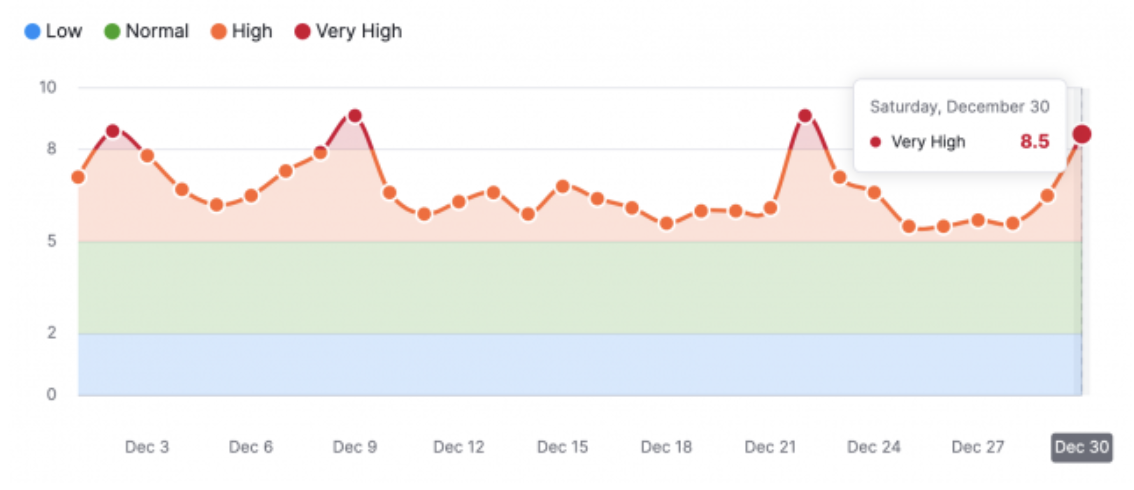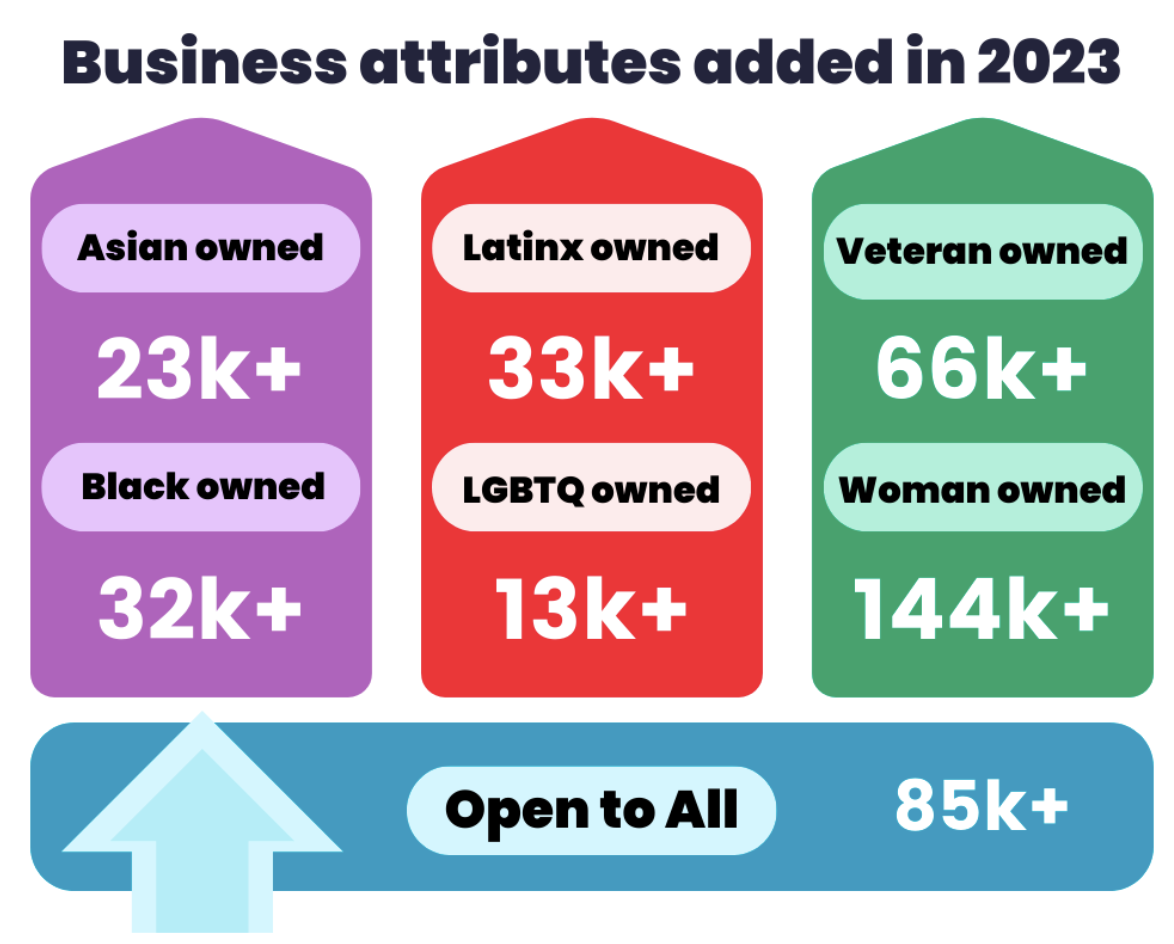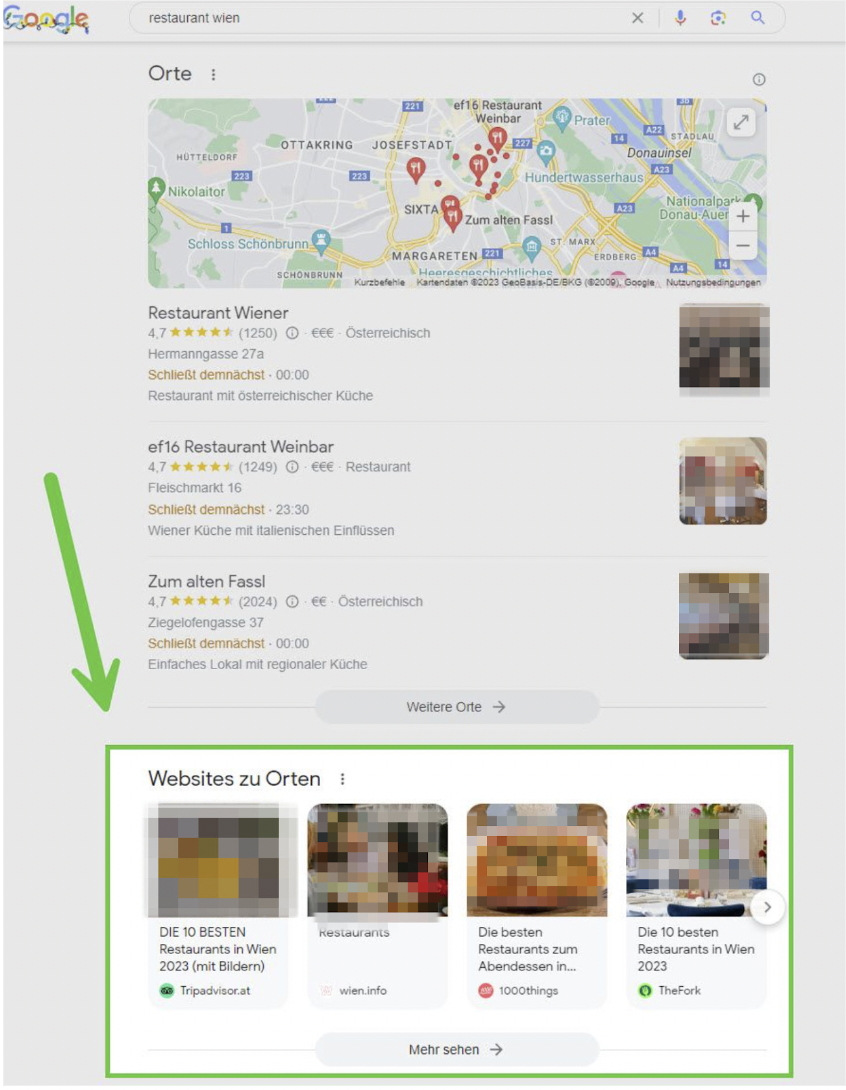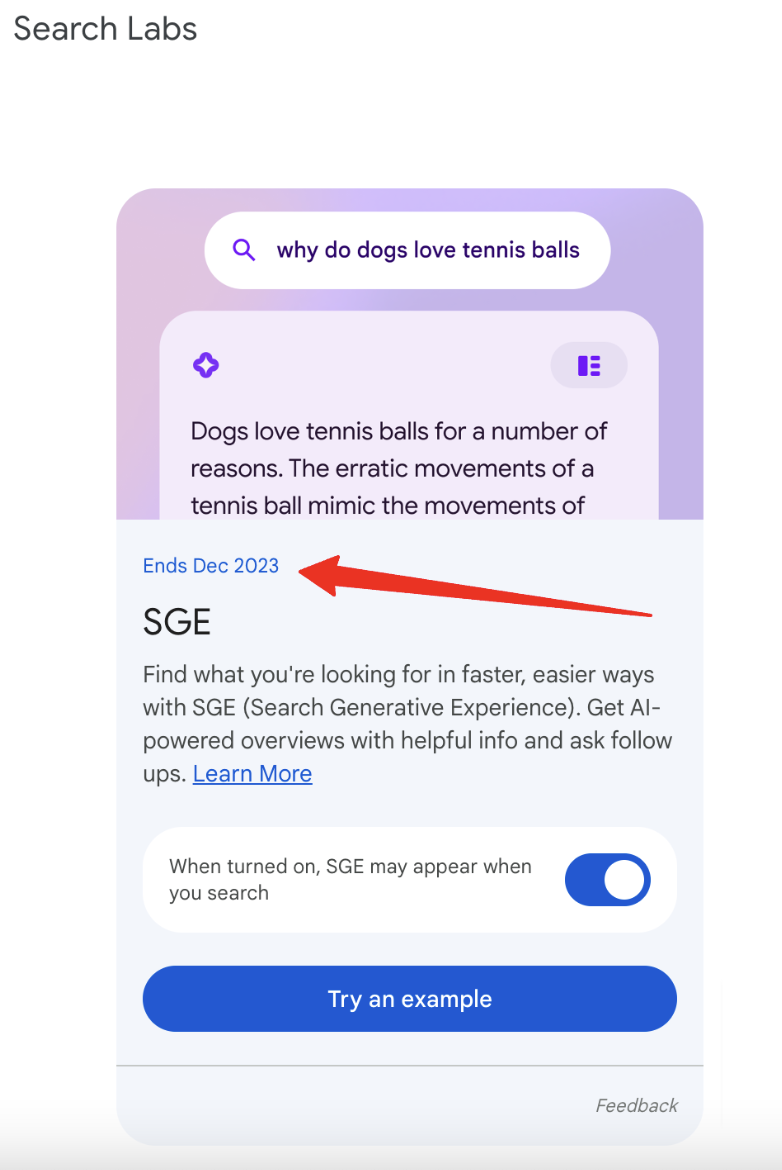Local Memo: Reports of Christmas and New Year’s Eve Volatility in Google Search Results

Local Memo: Reports of Christmas and New Year’s Eve Volatility in Google Search Results
In this week’s update, learn about holiday volatility in search results; how to remove the reservation button from restaurant profiles; the Q4 local search news you should know; a recap of Yelp search in 2023; Google’s test of “Websites for places”; and the removal of SGE’s end date.
Reports of Christmas and New Year’s Eve Volatility in Google Search Results
Barry Schwartz has reported on two rounds of “intense” search ranking volatility during the holidays, one just before Christmas and another around New Year’s Eve. Traffic tends to drop for many websites over the holidays, but this year the traffic losses were reported by many as more significant than normal. It would be highly unusual for Google to roll out an algorithm update during this period, though some commentators do suspect that this is what happened.

Semrush ranking tool showing “very high” volatility on December 22 and 30, courtesy Search Engine Roundtable
How to Remove the Reserve Button from Google Restaurant Profiles
Tim Capper shares some tips for removing those sometimes unwanted third party reservation buttons from restaurant profiles on Google. Google’s help documentation advises that businesses wanting to disable the reservation button should work directly with the third party, but it can be tricky to identify who that provider is. This can be done by visiting the Bookings link in GBP, where enabled providers are listed. Capper suggests that businesses should keep an email record of requests to disable the reservation feature and responses from the provider, for two reasons. First, technical issues sometimes prevent the button from being properly removed, in which case you can provide details to Google to get the issue resolved. Second, if the provider fails to act on your request, you can offer evidence to Google who will follow up.
The Q4 Local Search News You Should Know
Miriam Ellis offers a useful recap of local search developments for Q4 of 2023 that marketers should be aware of. These include the strengthening of openness as a ranking factor, recently confirmed by Google; the addition of disabled-owned, Indigenous-owned, and small business to the list of attributes available to all businesses; new attributes for gyms (first reported by yours truly with thanks to Mike Snow); and a few changes to messaging, including a new “Chat with a live agent” option that can be enabled by working with third parties, as well as custom and automated FAQs for the native Google messaging tool. There are many more important tidbits in Ellis’s article, which is very much worth reviewing in full.
Yelp Reviews Search in 2023
Yelp has a year-end recap showcasing stats of Yelp search activity in 2023. During the year, Yelp users clicked through to business websites 140 million times and called a business via Yelp 26 million times. Yelp users wrote 20 million reviews, posted 19 million photos, and sent 96 million “messages and requests” to businesses.
As for businesses, they replied to customer reviews 3 million times, according to Yelp — a response rate of 15%. Some 400,000 businesses made use of attributes identifying them as minority owned, with Yelp noting growing adoption for these attributes compared to prior years. Yelp reports that the following were the most searched business categories for 2023.
- Restaurants
- Food
- Nightlife
- Shopping
- Beauty
- Health
- Home services
- Active
- Auto
- Local services

Courtesy Yelp
Google Tests “Websites for Places”
A user in Austria has spotted a new section showcasing websites in local search results, with the heading “Websites zu Orten” or “Websites for places.” The section appears to showcase, in a carousel layout, websites that offer alternative search results to those presented by Google. In the example shown in the screenshot below, “Websites for places” has various sites with top ten lists of local restaurants, shown in a search result for restaurants in Vienna.
It’s not too surprising to see such a result in a European SERP, given the EU’s strong regulatory stance towards Google and the resulting pressure to open up search results to more competition. We’ve seen examples like this in the past, though not with this exact layout. The format also echoes SGE results, which use a carousel format to showcase websites next to the local pack.

Courtesy Alexander Außermayr, Search Engine Roundtable
Google Removes End Date from SGE
As spotted by Nicholas McDonough, Google has removed the December end date from SGE in Google Labs. When originally launched, the tag “Ends Dec 2023” was prominently shown in the display card for SGE, but it is now gone and no updated date is shown. Similarly, the end date of February 2024 has been removed from SGE for users in India. Though this may seem like unimportant news, we know that a future where SGE, or a version of it, becomes part of the main Google search interface is probably coming, so any news about the timing and details of that transition is worth tracking. The removal of any end date to SGE as an experiment probably indicates that Google has decided to make that timeline indefinite — after initially suggesting that AI might enter search officially as early as now.

Courtesy Search Engine Roundtable




